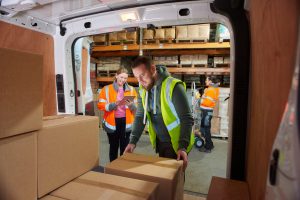When it comes to shipping, few products have seen more changes than wine and related products. Not only are there regulations to contend with, but the very models that wineries are using to market and sell wine are changing. This makes the process of getting products into the hands of customers that much more complex.
Traditionally, wineries would start their research into shipping by getting quotes for Full Truckload (FTL) and Less Than truckload (LTL) shipments from carriers. Before doing that, however, today’s savvy shippers ask themselves a number of questions so that they can request the right services and minimize future surprises:
Question 1) What is the product classification? Each product has a different classification. Wine has a different classification than lightbulbs or golf clubs, and that classification needs to be known in advance of getting a quote. For example, wine is typically considered a class 100 product.
Question 2) How fast does the shipment have to happen? Carriers like FedEx Freight, Roadrunner, and others offer different pricing based on the service requested. The various services often differ in terms of speed. For example, priority service has a faster delivery time, but will be more costly than an economy service with a slower delivery time. (FedEx freight offers a Money Back Guarantee with their Priority Service offering.)
When it does come time to request quotes, it is worth asking if drivers will be working alone or as part of a tag team of drivers. A tag team of drivers can usually produce faster delivery, as the truck can continue to operate with minimal rest stops.
Question 3) What will loading be like, and what will receiving be like on the other end? Is the shipment going from a facility with a dock to a facility with a dock? If so, there are a number of vehicles that can handle that move. Different vehicles with different capabilities will be needed is the move is door to dock, or dock to door. Without knowing what the loading and receiving requirements are, you may end up choosing the wrong vehicle to deliver your freight and thus the shipment will get charged additional fees..
For example: A dock-to-door shipment will require that the final mile delivery vehicle will need a lift gate—a device on the back of the vehicle that can be raised and lowered during the loading and unloading of goods. A pallet jack, which is a basic form of forklift for moving pallets, might also be required.
Question 4) What kind of operation is on the receiving end? Is the shipment being sent to a residence? A business? Will the delivery need to be taken inside a building or an office? While large bulk wine move are typically dock-to-dock transfers, it is important to note when they are not, as these kinds of moves often result in additional charges.
Question 5) What kind of shipping “environment” is needed? Most trucks are not temperature controlled. For the most part, these “dry van” trucks are fine for shipping products that are not temperature sensitive. Even products that are temperature sensitive, like wine, can be shipped during the cooler months, or for short distances. However, shipping wine or temperature sensitive products long distances, especially during the summer months, is gamble. Temperature controlled shipping might be the way to go.
An increasingly popular way to preserve wine from undue heating (or freezing) during shipment is to use thermal foil blankets, which provide additional insulation. Fedex, for example, provides a blanket service that saves wineries the cost of providing their own blankets. Protek Cargo out of Napa, CA, also provides a number of thermal pallet covers and has a blanket service lease program for temperature sensitive deliveries.
Before getting quotes for FTL or LTL shipping, it pays to ask and answer these kinds of questions. Doing so ensures a more accurate quote and limits the “surprises” that can arise.
At Copper Peak logistics, we have done many quotes for LTL, FTL, and other kinds of shipments, all as part of our craftsmanship fulfillment for speciality products. If you would like to learn more, please contact us.




